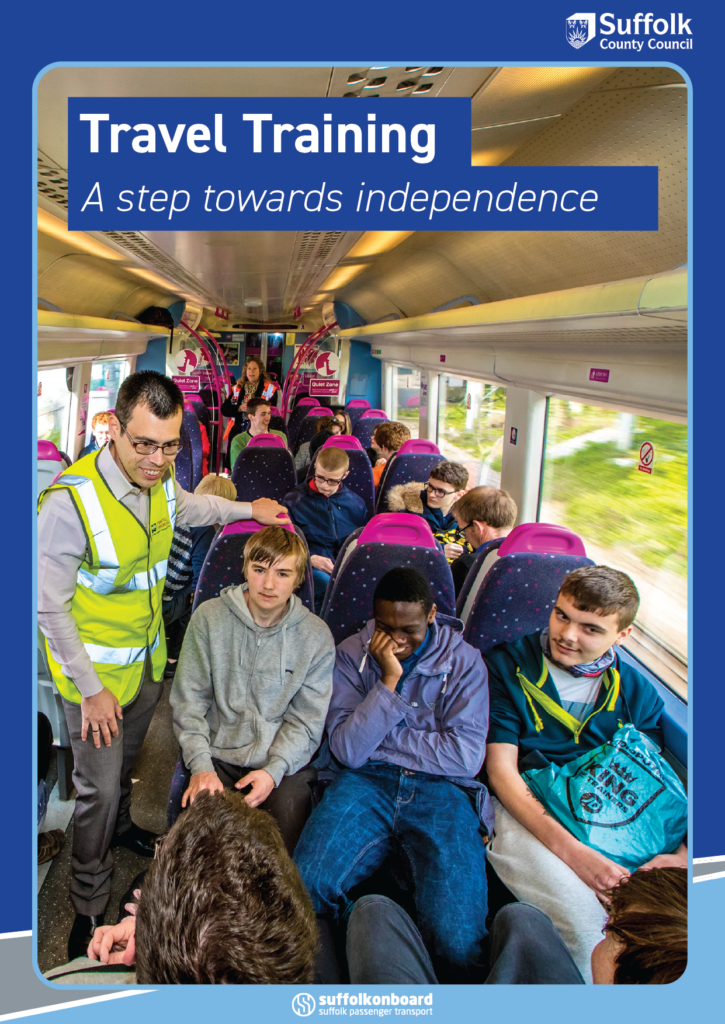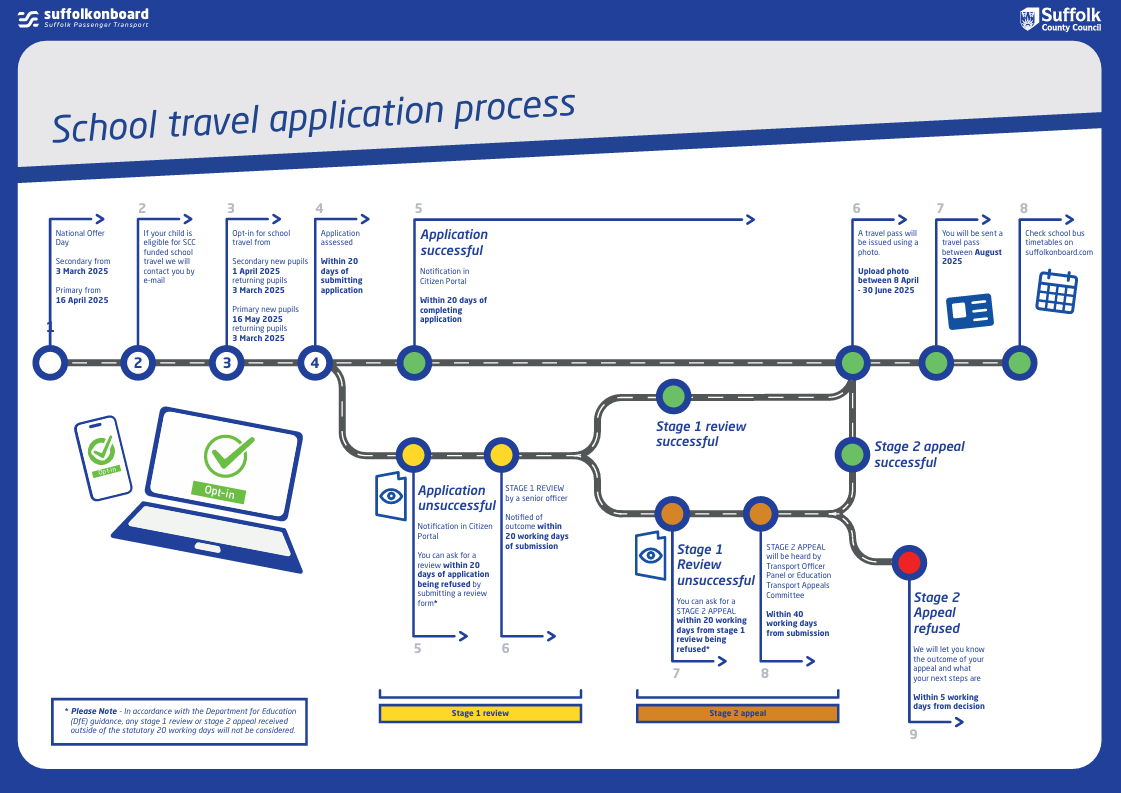SEND Home to School Transport
This page is intended to help parents and carers clearly understand Suffolk County Council's (SCC) rules for free school transport.
Eligibility Criteria
Apply (Opt-In) Age 5-16
If you believe your child might be entitled to school travel, you they advise to opt-in by 31 May each year. If you are unsure if you need to opt-in, or have general questions, please contact the Suffolk County Council (SCC) customer services at customer.services@suffolk.gov.uk or on 0345 606 6173 (Option 3).
Click the button below to apply for SEND School Transport and view the parent and carer guide for SEND transport.
Click the image to expand.
Parental Agreements
When there are no suitable school or public transport routes available or due to particular SEND requirements, Suffolk County Council (SCC) may offer parents and carers a parental agreement. SCC will pay a fixed cost per mile towards costs for the parent or carer to transport a child to their place of education.
Find out more information by clicking the button below.
Post 16 Learners
SCC funded Post-16 travel is not generally available, this includes students with an Education Health and Care Plan (Education, Health and Care plan), however, subsidised travel will be provided to their nearest suitable school sixth form or Post-16 centre where they meet the criteria of the post-16 policy.
Assessment for learners with SEND When determining whether to provide Post-16 travel SCC will consider:
- The needs of those young people, who without Post-16 travel support, would be unable to attend an education or training establishment;
- Distance and journey time from the young person’s home to establishments of education and training and the cost of travel. Reasonable maximum one-way travel is usually considered to be 75 minutes;
- The nature of the route or alternative routes which the student could reasonably be expected to take;
- The reasons why a student wishes to attend one establishment rather than another, where it makes sense to do so;
- Anything recorded in an EHC Plan about travel to the Post-16 provider;
- Where there is a nearer institution which is suitable and can provide the same or similar qualification(s) or course;
- The best use of SCC’s resources;
- The nature of the student’s SEND. This includes the physical ability of the young person to walk, accompanied as necessary by a responsible adult to the learning provision or a pick-up point;
- Whether the young person has received Independent Travel Training skills, is able to travel independently and his or her ability to access public transport or transport operated by others.
All post-16 students are required to make a contribution towards their travel costs.
Find out more information by clicking the button below.
Unsuccessful Transport Applications
If you have applied for school travel and it has been refused, and if the communication you have received has advised you of the right to challenge this decision, you will need to complete a review/appeal form within 20 working days of the date on your refusal letter.
If you need help to complete the form or do not have access to the internet, please contact our customer services team on 0345 606 6173.
Once your online form has been received, it will be assessed within 20 working days. You will then be contacted by Suffolk County Council (SCC) to advise of the next steps, including information on which appeal panel will consider your case and how you can submit any supporting evidence. If you are not able to appeal, you will be given guidance on SCC’s corporate complaint’s process.
Travel Training
Suffolk County Council's Travel Training is a free service designed to teach young people and adults with special educational needs and disabilities (SEND) how to travel safely and independently across the county. The programme uses dedicated trainers who work one-to-one with individuals, often over a number of weeks, to learn a specific route—typically to their place of education or day service provision—using public transport or walking. The goal is to build confidence and essential life skills, allowing the trainee to eventually complete their own independent journey.
Click the button below to share your feedback with us.


